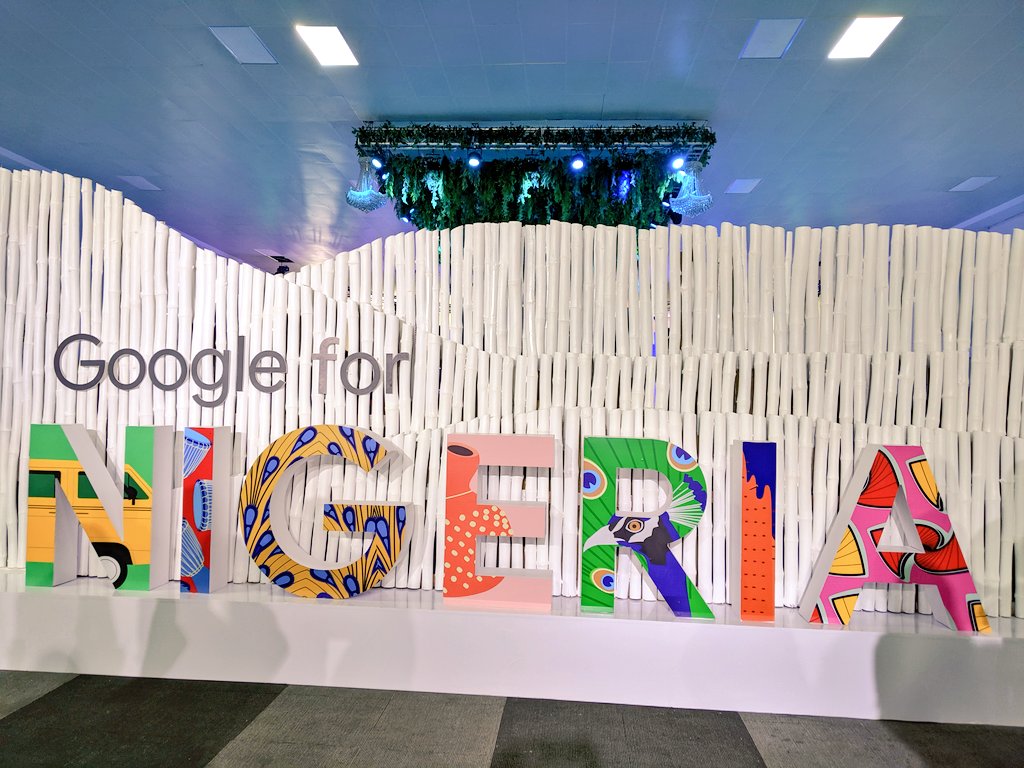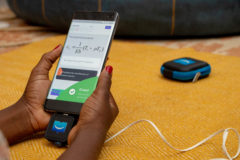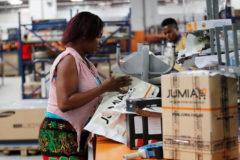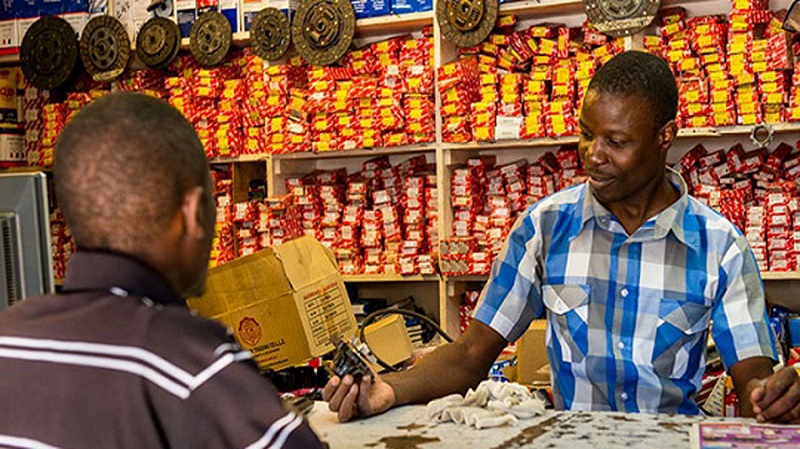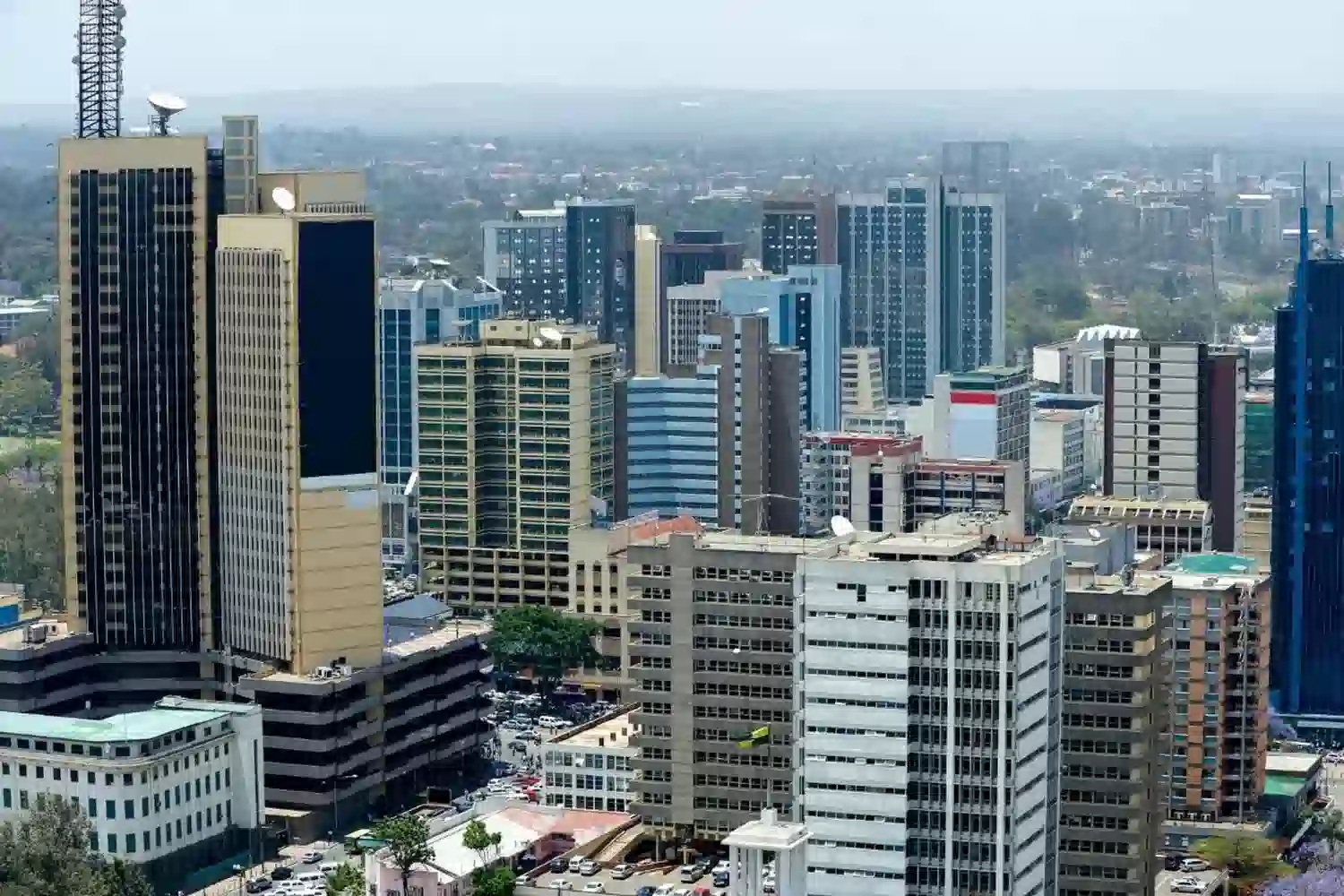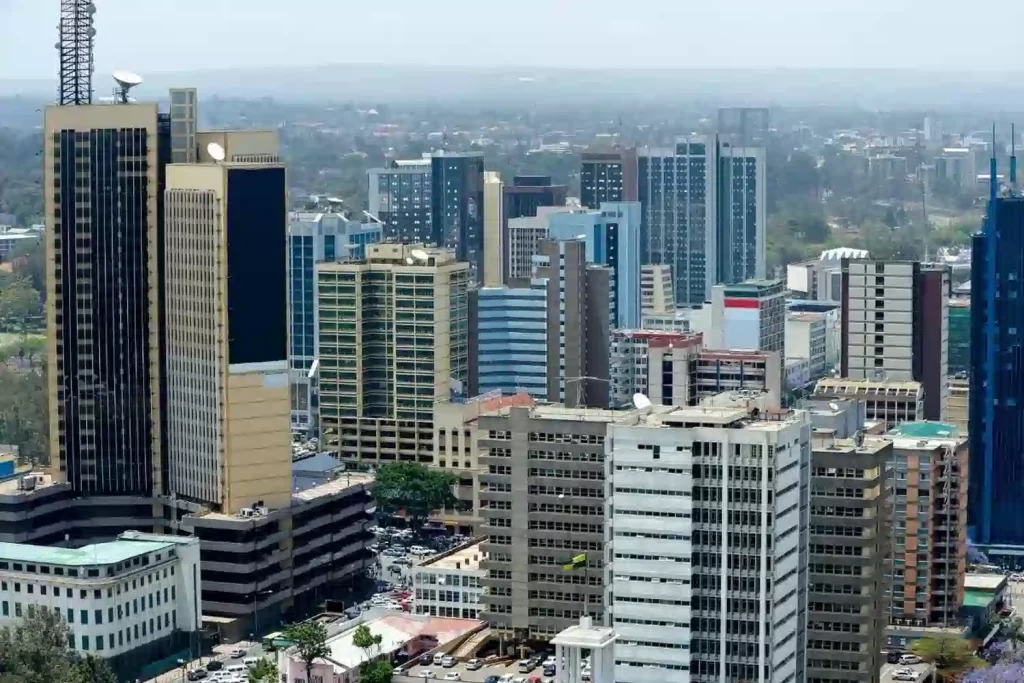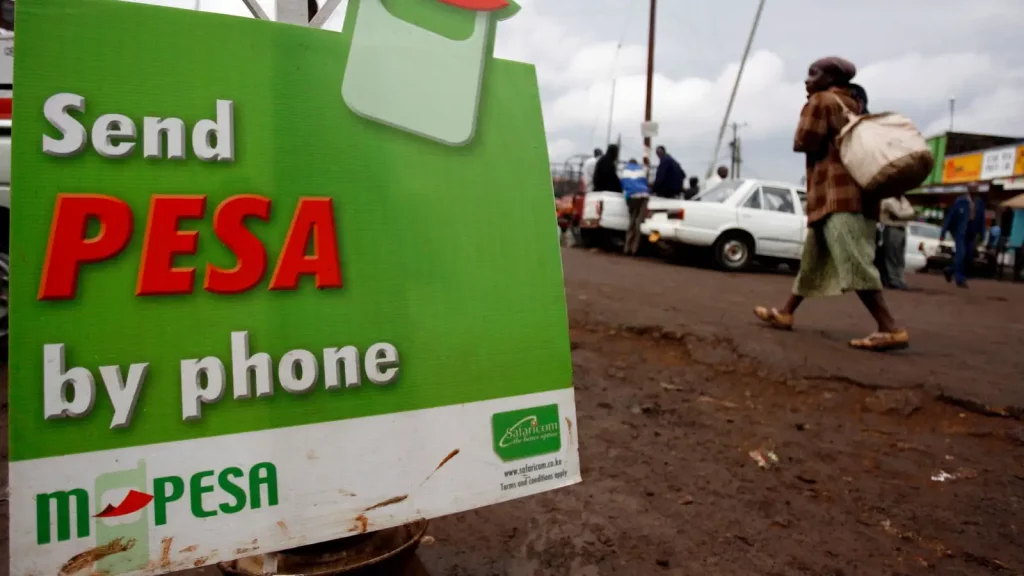“What country has the best jollof rice” is an unlikely question to hear on stage at Google’s Google for Nigeria event in Lagos held on July 24th. But here we are. It was a lighthearted question posed by Moustapha Cisse, head of Google’s Artificial Intelligence Centre in Accra, who claims jollof rice is good in Nigeria, better in Ghana, and fantastic in Senegal, where he’s from. And with that, the third edition of the annual event, aimed at raising awareness for Google’s activities in Nigeria over the past year, kicked into gear.
It’s no secret Google is broadening its horizons in the global south as it rolls out a slew of new apps and features that specifically target African audiences. Nigeria, with its outsize population of more than 180 million people, is naturally a target.
Google AI
Google’s headline activity in Africa over the last year was the launch of its Artificial Intelligence Centre. It became fully operational in April. Cisse leads a diverse team of research scientists and software engineers that aim to make AI more inclusive for Africa.
“The most exciting part of our job and our research is to use this technology and advances that we make from a scientific perspective and turn them into tools that can help tackle some of the challenges we face in Africa,” Cisse said Wednesday.
He hopes it will be applied to different sectors of society like health, agriculture, education and many more.
Funding the future
Google is supporting startups from across the continent with $4 million in funding to support youth empowerment, gender equality and promoting the future of work. One of the beneficiaries of the largesse is HelpMum, a startup that provides clean birth kits to pregnant women in mostly rural areas. It won $250,000 in the first-ever Google Impact Challenge Africa, Nigeria held in 2018.
A Launchpad Accelerator that began last year to train 60 startups in three years has already seen 35 of them graduate, creating 385 jobs and raising more than $19 million, says Juliet Ehimuan-Chiazor, Google Country Director in Nigeria.
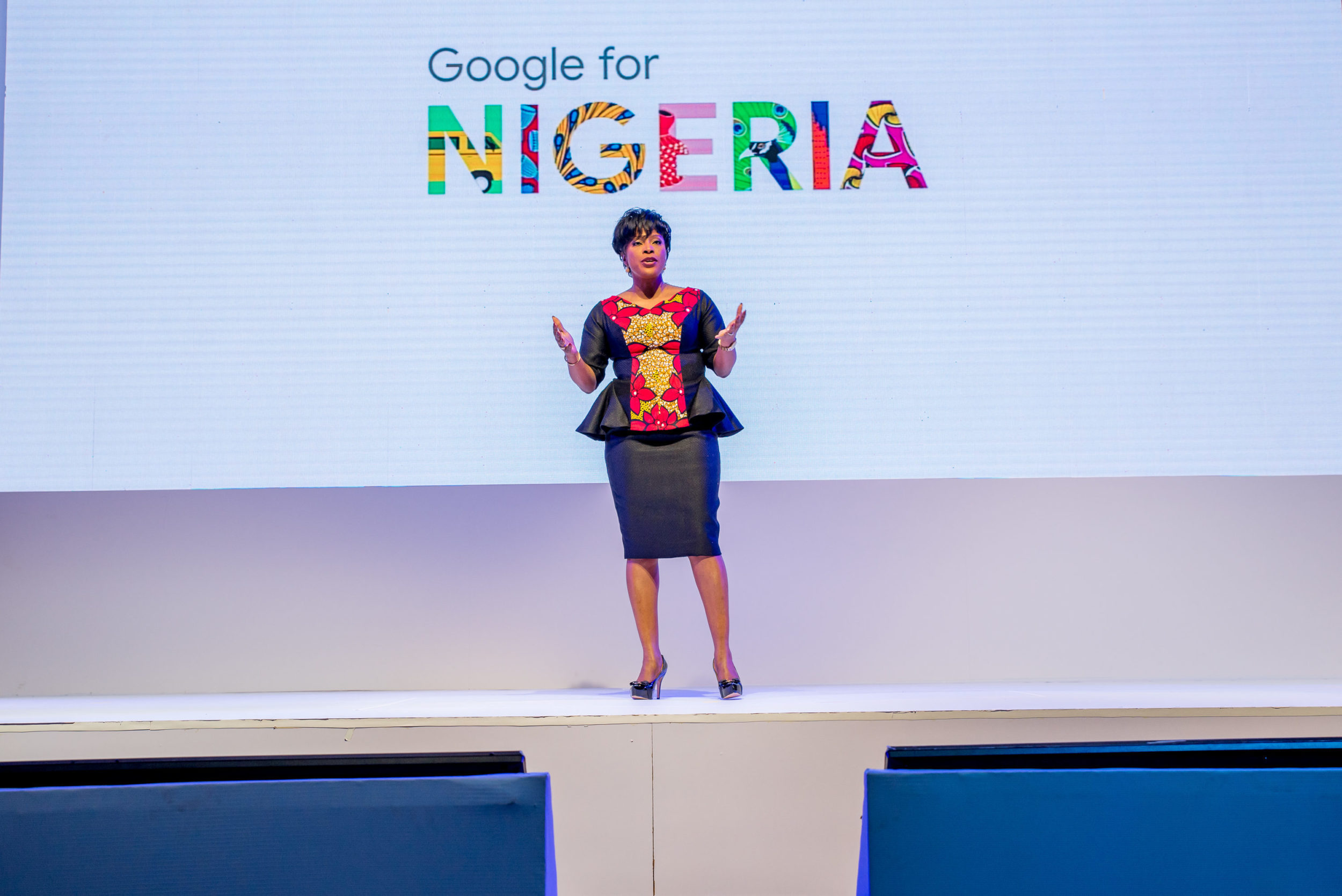
Beyond funding startups, Google says it is partnering with the Nigerian government for an online safety curriculum for all primary and secondary school students in the country. It is expected to reach an estimated 56 million Nigerian students. Paul Nicholas, Google’s Director, Trust and Safety says one in three internet users is under 18, and protecting youngsters when they use the company’s services is paramount.
Old and new apps rebooted for Nigeria
Google Maps is one of the most used apps in Nigeria as it helps users to navigate their way around the country. It’s particularly useful for Lagosians who rely on the app to check the status of traffic before heading out. And now, Nigerians will be able to listen to directions from a female Nigerian voice. It’s a step up from listening to a foreign voice mispronounce names, despite its best efforts.
Maps will also now feature a special tab for okada (motorcycle) and danfo (yellow buses) to provide added information for commuters in Lagos. This new feature will launch in the coming months, said Ramesh Nagarajan, Google’s director of product management. Informal transit options abound in Lagos due to heavy traffic and a lack of public transport infrastructure, making them the default means of transportation.
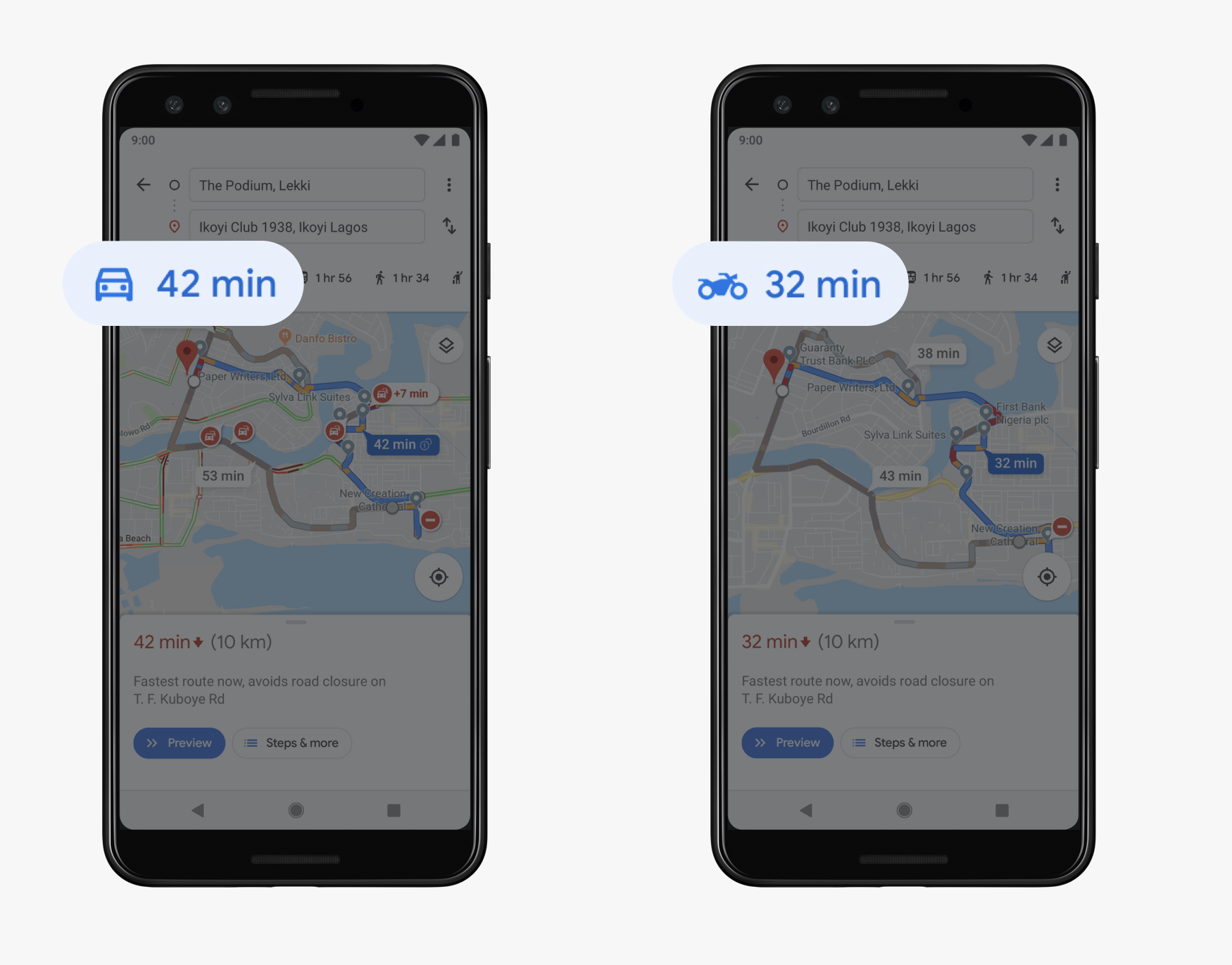
Local startup Road Preppers, owners of Lara.ng that provides directions for users on Lagos roads and using informal transport, partnered with Google on the project. Commuters will have an estimated transport fare, travel time and photos of bus stops to help them navigate the often tricky road networks in Lagos. Okada directions will also be available in Benin Republic, Ghana, Rwanda, Togo and Uganda from Wednesday, Nagarajan said.
Also introduced was StreetView to provide an overview of major streets across the country. Previously available only in Lagos, there will be a rollout in Abuja, Benin City, Enugu and Ibadan. However, privacy concerns over StreetView’s use of private data remain and the company is currently awaiting a judge’s approval for a $13 million settlement over a class-action lawsuit over its collection of people’s private information.
In what was a busy day of product announcements, the company also unveiled Bolo, Lens and Gallery Go. Bolo will aid children to learn how to read via voice commands. 20 African books are currently available. Lens is for capturing images with text and translating to the user’s preferred language option. Hausa, Igbo and Yoruba are available for users.
Gallery Go is an app that allows users to organise and edit their photos. It is essentially a lite version of Google Photos as it targets users in regions with unreliable internet connections. It takes up only 10MB on phones and is designed to work offline. On the same day Google announced that its Photos app has reached a billion users, it is hoping Gallery Go, with its nimbleness and offline usage will lead it on the road to the next billion.
Entertainment
Google is betting big on entertainment in Africa. As content creators continue to emerge via YouTube and make a living out of it, the company is now turning its eye towards music. With Apple, Spotify and many others already in this crowded field, Google has its work cut out for it. But the company is aiming big, said Lyor Cohen, global head of music at Google and YouTube. It wants to become the number one contributor of music revenue to artistes by 2025 through a four-pronged plan of advertising, subscription, promotion and direct to consumer efforts.
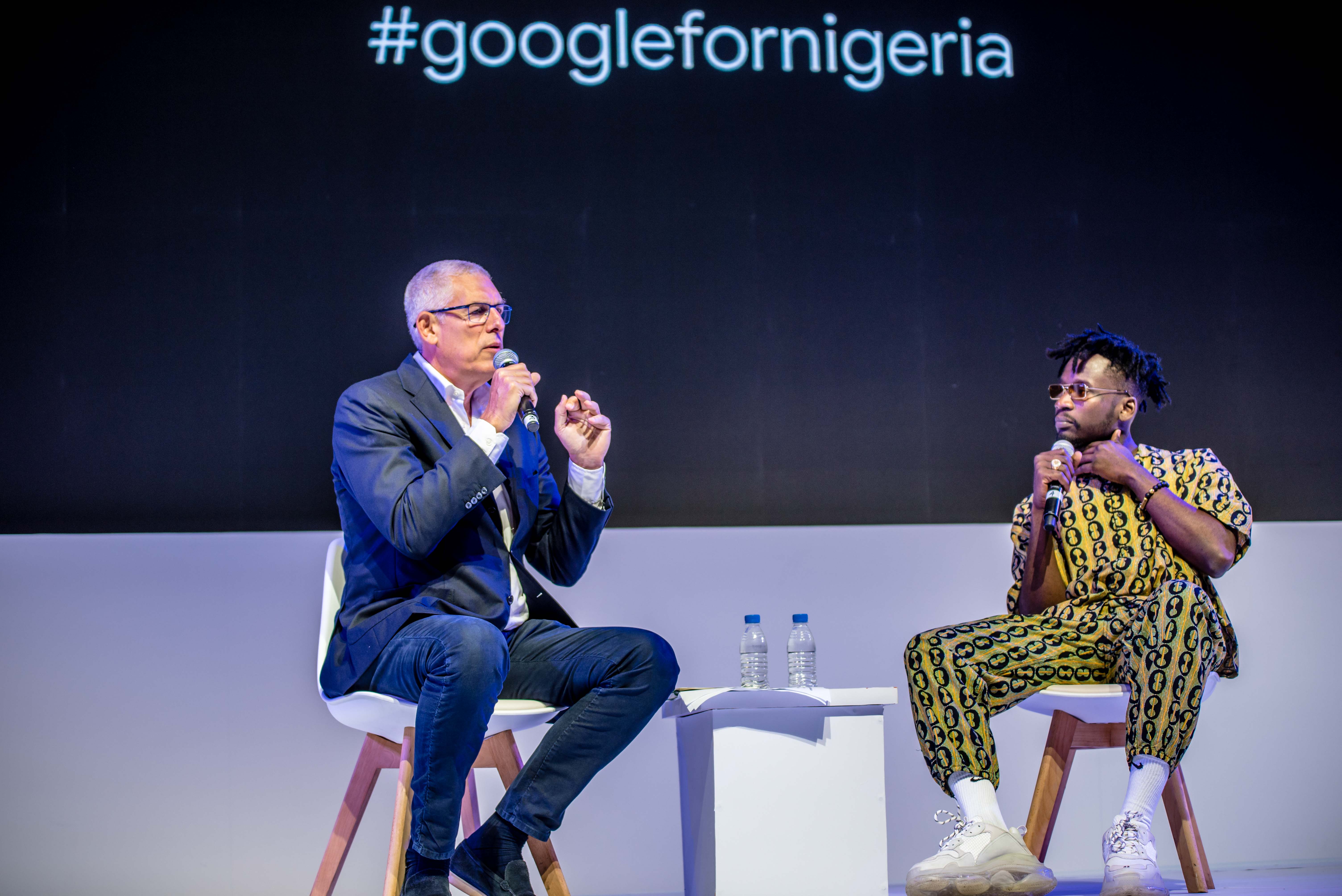
For a start, Google has teamed up with the music superstar Mr Eazi to support 10 emerging Nigerian musicians through emPawa Africa, an incubator that is the singer’s brainchild.
With that announcement, the event drew to a close. Or so we thought. To cap things off, there was a surprise performance by Tiwa Savage to send the crowd on its way home, with no-one the wiser about where the best jollof rice in West Africa originates from.
Correction: July 29, 2019. An earlier version of this article stated that Gallery Go is designed to work online. It is designed to work offline.









